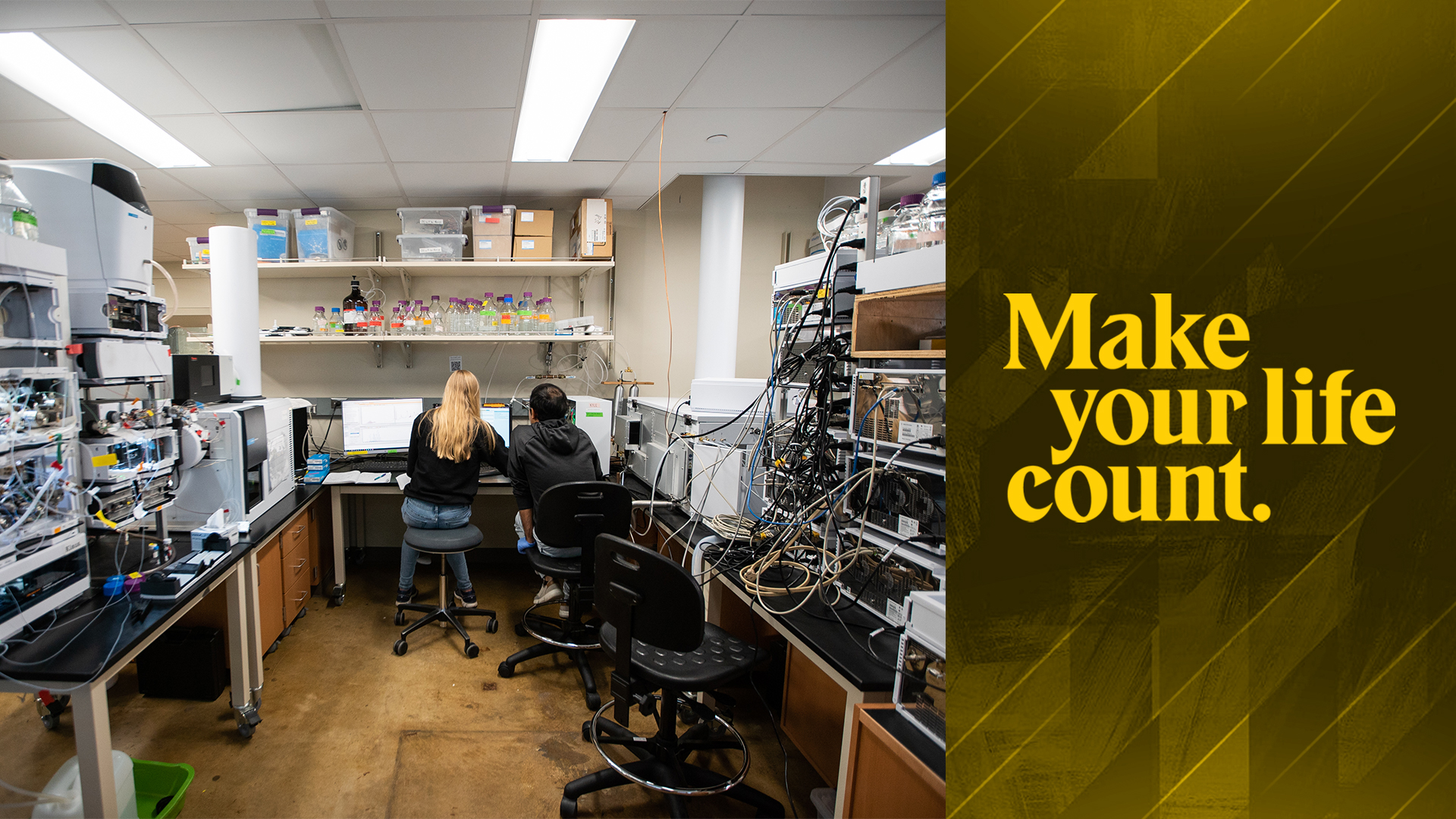From national parks to labs on the Hill, over 60 Gustie students are conducting summer research in topics ranging from chemistry to art history. Whether they’re studying distant planets or the distant past, their work will impact their futures as students, scholars, and curious citizens. It will impact the world as well.
“Summer is a wonderful time for students to give research their full attention,” said Hayley Russell, director of undergraduate research. “This summer there are students in a wide range of disciplines answering fascinating questions in the lab, archives, or field. I’m excited to see the many things students learn about their research topics and themselves.”
Unlike larger institutions where undergraduates compete with graduate students for research opportunities, Gustavus students benefit from multiple chances to collaborate with faculty researchers throughout their four years, sometimes from their very first year at Gustavus.
“Not very many schools have these kinds of opportunities,” said Emma Stock, a rising sophomore biology major. This summer, she’s working with biology professor Katie Leehy on a project to manipulate plant genes with the hope of boosting their resilience in the face of droughts and other environmental stressors. To accomplish this, Leehy and Stock are using CRISPR/Cas9, a genome engineering technology that helps researchers target specific strands of DNA.

While students like Stock are studying organisms on Earth, others are turning their attention to the stars. Through an internship with the Planetary Science Institute (PSI), rising senior Federico Fiorda ’23 is spending his summer analyzing photos of the Jezero Crater on Mars, where scientists have found evidence of an ancient lake system. Using his background as a geography major, he will study images from the Curiosity and Perseverance rovers to learn more about the process of rock formation on ancient Mars.
“What makes me excited is the chance to get a close up experience with professionals and basically work like one of them,” said Fiorda, who will have geology and environmental studies professor Julie Bartley as his local supervisor, in addition to a Rover scientist from PSI as his internship sponsor.
From networking with professionals to sharpening critical thinking skills, there are numerous benefits to pursuing research as an undergraduate. “Research is a wonderful way for students to apply the skills they are learning in their liberal arts degree,” said Russell. “They will need to critically evaluate information, grapple with ethical decisions, and communicate clearly to a variety of audiences.”
“Communication is essential,” agreed Amelia Wernsing ’23, a senior biology major. “Whether you are explaining a procedure or highlighting important data trends, you will be learning how to convey information clearly and concisely.”
Wernsing’s summer research project concerns fruit flies and their response to cold temperatures. With the assistance of biology professor Yuta Kawarasaki, she will use a number of scientific techniques to study p38 MAPK, a specific protein that helps fruit flies rapidly increase their tolerance of cold shock.
Other Gusties are researching topics from the impact of soil erosion on crop production in Saint Peter to the effects of global social media networks on attention spans. What unites their work is a curiosity about our world and the commitment to discover answers about their topic, the research process, and themselves.
“Summer research can be a really valuable experience,” said Wernsing. “Not only because it’s fascinating, but also because you will grow in so many different ways.”
To learn more about research opportunities at Gustavus, visit https://gustavus.edu/research/.

Leave a Reply
You must be logged in to post a comment.